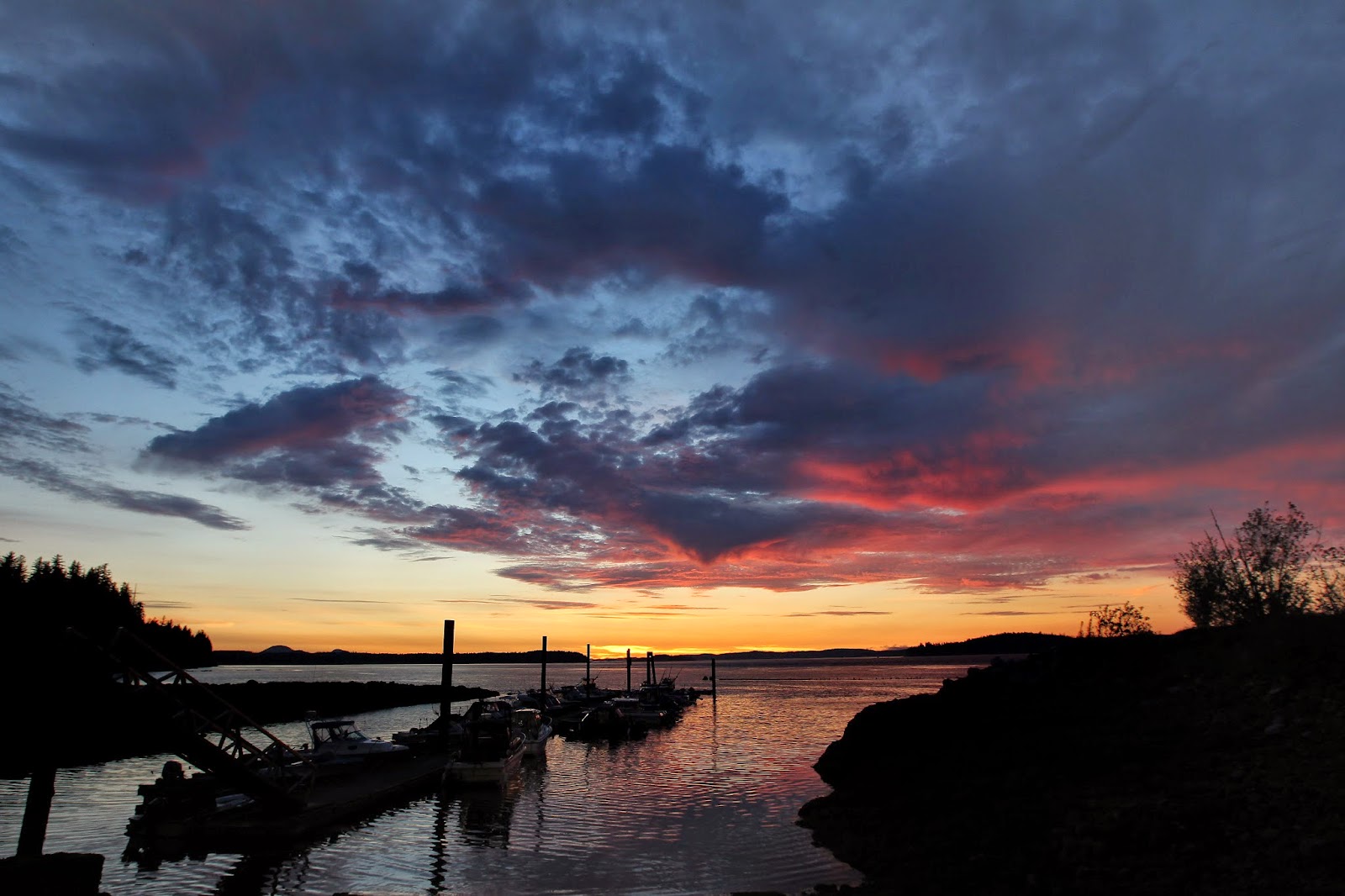If you ever have the inclination to travel to B.C. Canada
don’t miss Vancouver Island.
We
entered via ferry on the South side of the island in the seaside community of
Sidney with our Vanagon Westfalia. The great thing is the Vanagon is not really
an RV, but a smaller camper van, well within the size to get on the ferry as a
regular vehicle and not an RV (which costs more to transport). The ferry ride
is spectacular while you spend close to 3 hours making way through the San Juan
Islands before reaching your destination to the island. From Sidney to
Victoria, Canada, is a short one-half hour ride where excellent dining and
world class views of the waterfront and historic buildings await. Over 300
miles north, near the town of Port McNeil was our ultimate destination:
Telegraph Cove. It has a rich history as a logging town and started as a very
remote telegraph station of the northern east coast of Vancouver Island. A
place I once visited close to 25 years ago to photograph orcas with scientist
Dr. David Bain, of University of Washington. I promised my wife I’d take her to
this remote location one day in a less professional capacity, so we finally
did. It is now more developed than it was before 25 years ago, sporting
restaurants and newer places to stay. Alder Bay resort is a terrific camping
spot for RV’s or campers of any type. |
| Alder Bay dock at sunset a few miles from Telegraph Cove. |
A few miles from there is Telegraph Cove
where many now go to take whale watching tours. Due to research by Dr. Bain and
other scientists more is now known about the magnificent creatures known as
killer whales. They are more threatened than ever before due to man’s
pollutants and encroachment. The hope is that through better conservation
efforts we can preserve their environment as well as the entire ecosystem that
supports them, the rich wildlife of the ocean, and our entire food chain. The
tours are conducted with respect to the whales by allowing everybody to see a
clear view as the boats slow down and keep a respectful distance, so as to not
disturb the whale’s feeding habits. As a suggestion bring a long lens for your
camera or binoculars if you want to enhance your views more.
The photos I shot
of the I15 pod of “Northern Residents” were taken with a long telephoto
lens. Everybody was thrilled with
the killer whales and we also saw humpback whales, harbor seals, and a Pacific
white-sided dolphin on our tour. A naturalist on board the Stubbs Island tour
boat informed us of animal behaviors and gave us great insights into the lives
of the creatures we saw.
 |
| A humpback whale known as "Conger" feeds on a "fish bait" in Blackfish Sound near Vancouver Island. |



1 comment:
Reading your narrative and looking at the amazing pictures taken on your vacation, made me rethink my destination vacations for next year. I am adding British Columbia and a boat or ferry trip through the San Juan's to my destination/vacation calendar.
Thank you for jogging my memory that not all vacations require hundreds of miles of air travel. After all I live in Seattle.
Post a Comment